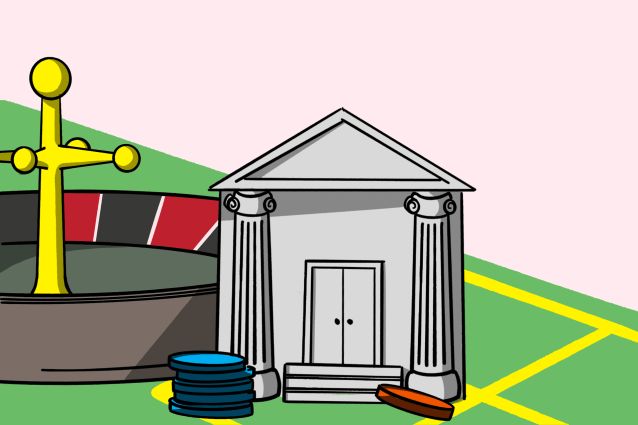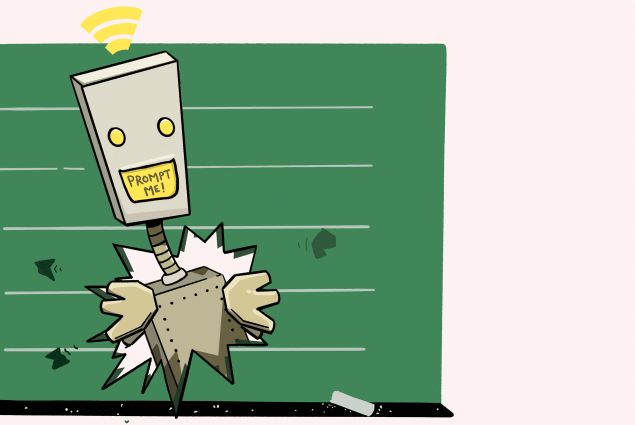December 29, 2022 is the 5th anniversary of Dr. Glaze’s report, “Raise the Bar” which dramatically overhauled the governance of Nova Scotia’s education system. The “Education Reform Act” (Bill 72) became law just over two months later in early 2018 and effectively dissolved all the province’s English language school boards. It also removed principals from the Nova Scotia Teachers Union (NSTU).
Canada has been described as a superpower in public education on the international stage. It has achieved good results on international comparison studies as well as high levels of equity in academic performance. One of the contributors to these results is the generally constructivist attitude towards education – teaching students to think and problem-solve rather than merely absorb knowledge.
Education is a provincial responsibility and most provinces have public education goals that use language encouraging democracy, fairness, equity, and citizenship. (Nova Scotia’s public education system “aims to develop well-rounded, independent, critical thinkers who take initiative and responsibility for their learning.”) In the early days of public education in Canada, “success” meant mastery of the 3 R’s—reading, writing, and arithmetic—but as society has become more diverse and complex, the definition of success has expanded to include 21st century competencies of critical thinking, creativity, communication and collaboration, among others.
As this evolution in education was happening, forces have been trying to counter it – initially through the “back to basics” movement which emphasized knowledge and skills that can be easily measured on standardized tests. This corresponds with the increasing marketization of education – the idea that education is a business which can be better handled by the private sector. This dual challenge to progressive education has gained steam recently in the United States, where publicly-funded charter and private schools flourish and “culture wars” are seriously threatening public education.
These “culture wars” are pitting those who believe in democracy, inclusion, and equity against those who claim that schools are indoctrinating children in socialism, openly questioning the premise of equity and inclusion. Disinformation, conspiracy theories and religious fundamentalism are fueling the self-described “anti-woke” lobby. Proponents use inflammatory language such as “pedophilia” and “grooming” to describe curricula and books which educate children about sexuality and gender issues or make disparaging accusations about “critical race theory” to describe teaching about racial issues and history. In the U.S., so-called anti-woke forces have succeeded in getting anti-trans laws passed, in suppressing the instruction of race, history, and 2SLGBTQAI+ issues, and in banning certain books in schools or libraries. “Parental choice” and “parents’ rights” have become code for the increasing privatization of what was conceived as a public good.
Here in Canada, recent school board elections in Ontario and BC – among others – have seen scores of “anti-woke” candidates openly expressing anti-2SLGBTQIA+ and racist views, some receiving training from the well-funded American right-wing think tank, the Leadership Institute . Fortunately, only a small percentage of these individuals were elected, so their influence through school boards – so far – is minimal.
However, the disturbing issue is that we are no longer merely emulating anti-democratic trends from the U.S.; there is now an organized, concerted effort to train people to infiltrate boards, lobby, propagandize and, eventually, change legislation. Left unconfronted and unchecked, this could ultimately result in a population that will be less prepared for the challenges of our increasingly complex world.
Given these threats to democratic education, how is Nova Scotia positioned – and what steps are being taken – for it to hold on to its aims of developing “ well-rounded, independent, critical thinkers”?
Unfortunately, we are not optimistic. Since the elimination of English language school boards in Nova Scotia, communication with the “Regional Centres for Education” (RCEs - their unelected replacement) has become a one-way street with communities having no formal channels to express concerns or advocate on issues important to them. The removal of that mechanism for democratic engagement and feedback has made it easier for a government to impose top-down curricula and directives. Another major repercussion is the loss of voices from the African Nova Scotian and Mi'kmaq communities, as identified by Adam Davies, a former school board member. Under the old system, each board had dedicated seats for a member from each group, voted on by self-identified members of that population. This was incredibly important when considering educational initiatives on Indigenous issues or anti-racist education – all important for teaching the critical thinking so essential for citizenship.
There are already indications of where Nova Scotia is potentially headed, with regard to undermining many of the progressive gains of the past decades. One only has to look at the Alberta UCP government’s attempt at curriculum rewriting, to correct a “schooling system where many students have been hard-wired with collectivist ideas,” according to then-Premier Jason Kenney. School trustees in Alberta were at the forefront of opposition to the government’s anti-collectivist curriculum revamp; without trustees, Nova Scotia will be in a much weaker position to counter such attempts.
Along with removing school boards, denying principals the protection of a union, may eliminate another obstacle to education reforms in line with neoliberal goals. Prior to Bill 72, principals acted as curriculum leaders, whose main role was to support the teachers; being in the union was an important part of this purpose. The Nova Scotia Teachers’ Union (NSTU) was established in1895 to, “…exert an influence in gaining better salary and aid teachers in securing better results in their school work.” The protective nature of a union allowed both teachers and principals to contribute to reforming education in the best interests of the students without fear of retribution. When Bill 72 removed administrators from NSTU, and created the Public School Administrators Association of Nova Scotia (PSAANS), its members were not able to organise their own union or take labour action. They remain affiliated with, but are not members of, the NSTU. The affiliation, reaffirmed by a vote in 2022, allows them to leave administration and return to the classroom and the union.
Without union support, administrators may feel vulnerable when challenging situations arise, such as being directed to impose new programs that may have been developed with minimal teacher consultation. Further, their position has been refocused, moving away from curriculum leadership and towards management. . Finally, with many administrators choosing to return to teaching roles or retiring, recruitment is becoming an issue. Experienced teachers are often not interested in leaving the protection of the NSTU or in being managers, so in order to attract candidates RCEs are dropping some of the requirements. This means at least some aspiring administrators will have far less experience and, potentially, education than the teachers they will be leading. Will they be well-positioned to push back against government decisions that may not be pedagogically sound?
Before Bill 72, back in 2017 the then-Liberal government had, through Bill 75, imposed a contract on teachers which removed negotiated benefits. Though the NSTU successfully challenged this in the courts, to date, no reparations have been made. BIll 75 was a galvanising event for teachers, who, with parents, protested and were at least partially responsible for the much reduced majority the Liberals were given in the election shortly after.
Unfortunately, the combined impact of these two bills has contributed to the demoralisation of educators who saw their autonomy undermined and their working conditions worsened (documented in Teachers’ Voices: An Independent Survey of Nova Scotia’s Teachers ). This demoralization was no doubt exacerbated by the province’s sudden and unilateral decision to legislate school psychologists, speech pathologists, and other specialists out of the NSTU (reinstated as a result of another court challenge). In addition, some NSTU work is being done by other employees : counselling, substitute teaching, and hallway monitoring are positions that are now sometimes filled by non-teachers.
The Liberals were voted out in the 2021 election, perhaps partially because of promises made by the incoming Progressive Conservatives to revisit educational governance, and reinstate school boards. However, to date, they have shown no sign of doing so. In fact, it appears that the trajectory of introducing more programs that further the marketization of education will continue.
For teachers to exercise their professionalism, and provide students with the critical thinking and media literacy skills that they need right across the curriculum, they need to be supported and respected. Many Nova Scotian teachers have been looking to the U.S. teachers’ unions which have become more militant recently after years of being marginalized and underpaid. Local grassroots organization, Educators for Social Justice-Nova Scotia (ESJ-NS), is promoting union learning opportunities such as Jane McAlevey’s Organizing for Power to increase engagement and awareness of benefits of unionism. Strong education unions, teacher awareness of union protection and advocacy, an educated electorate and strong, transparent, functioning elected school boards are essential for democracy to survive.
With the contradictory- named, anti-democratic “Keeping Students in Class” Act, Ontario is facing a showdown with workers that will be watched with interest by everyone in the country, especially in Nova Scotia where many education workers are currently striking. When our democracy is threatened by the very people we elected it is time for the people and their unions to mobilize!







